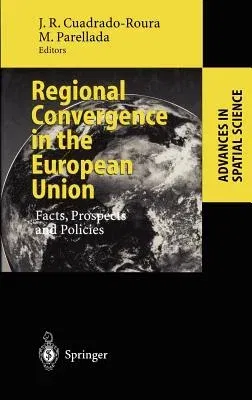Regional Convergence in the European Union: Facts, Prospects and Policies (2002)Hardcover - 2002, 10 April 2002

Qty
1
Turbo
Ships in 2 - 3 days
In Stock
Free Delivery
Cash on Delivery
15 Days
Free Returns
Secure Checkout

Part of Series
Advances in Spatial Science
Part of Series
Lecture Notes in Control and Information Sciences
Part of Series
Lecture Notes in Control and Information Science
Print Length
368 pages
Language
English
Publisher
Springer
Date Published
10 Apr 2002
ISBN-10
3540432426
ISBN-13
9783540432425
Description
Product Details
Book Edition:
2002
Book Format:
Hardcover
Country of Origin:
DE
Date Published:
10 April 2002
Dimensions:
23.39 x
15.6 x
2.24 cm
ISBN-10:
3540432426
ISBN-13:
9783540432425
Language:
English
Location:
Berlin, Heidelberg
Pages:
368
Publisher:
Series:
Weight:
707.6 gm